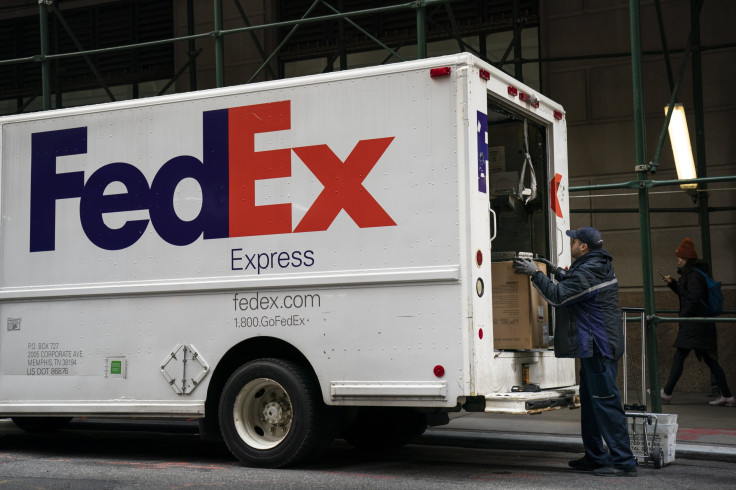FedEx Dumps Amazon Before Amazon Dumps It

It should be no surprise FedEx (NYSE:FDX) is ending its contract with Amazon.com (NASDAQ:AMZN) for its Express shipping service.
The writing's been on the wall for a while. Amazon is trying to replace its reliance on shipping partners including FedEx and UPS (NYSE:UPS) by building out its in-house logistics network. In its 10-K filing earlier this year, Amazon even listed "transportation and logistics services" as an area in which it competes.
FedEx Express is FedEx's air service used to transport packages from one airhub to another. Amazon will still use FedEx's last-mile delivery service in some instances, but it's become less reliant on FedEx Express as it builds out Amazon Air, which will have a fleet of 50 planes by the end of next year.
In a statement, FedEx said dumping Amazon, which represents just 1.3% of its business, will allow it to "focus on serving the broader e-commerce market." The company expects the number of e-commerce packages to double from 50 million today to 100 million by 2026.
Here's what investors in both companies need to know.
Amazon's going to be just fine
FedEx's decision to cut off Amazon from Express probably won't have a big impact on Amazon's business, and customers probably won't even realize anything's changed.
First of all, Amazon often uses UPS for Prime's two-day shipping benefit. Moreover, it's maintaining its last-mile delivery relationship with FedEx to plug in the gaps UPS leaves behind.
More importantly, however, Amazon recently announced plans to step up its investment in logistics in an effort to evolve Prime's two-day shipping benefit into one-day shipping. The company is spending an additional $800 million this quarter alone to build out its fulfillment network.
The move from FedEx might simply move up some items on Amazon's timeline for building out its fulfillment capabilities. It doesn't have a massive impact on the company's overall strategy. Amazon wants to shift more of its fulfillment in house because it's less expensive than fulfilling orders through UPS or FedEx, CFO Brian Olsavsky points out.
Amazon may eventually offer excess capacity in its cargo planes or within its delivery network to other businesses, putting it in direct competition with FedEx and UPS. FedEx even warned investors of that risk in its 10-K filing last year.
FedEx is making a strong move
If Amazon really has designs on competing directly with FedEx with its own logistics services, FedEx needs to prioritize other businesses ahead of Amazon's shipping needs. Establishing closer relationships with Amazon's e-commerce competitors now will prevent those businesses from leaving FedEx for an Amazon-backed shipping service in the future.
FedEx has already made some moves to help physical retailers compete with Amazon's shipping capabilities. It introduced its Extra Hours program earlier this year to help retailers fulfill late-night online orders from their stores.
Moreover, other retailers represent a much bigger growth opportunity than Amazon. Not only is Amazon pulling back on its reliance of shipping partners like FedEx, but its gross merchandise volume (GMV) is also growing more slowly than its competitors. Amazon's GMV grew just 13.5% last year. By comparison, Walmart and Target are growing online sales around three times as quickly.
FedEx is hitching its horse to faster-growing companies in the e-commerce space. Importantly, those companies don't have the same buying power as Amazon, which means FedEx will probably achieve higher margins by eschewing some of Amazon's business.
While FedEx may experience some short-term pain, its move to cut ties with Amazon is a strong long-term strategy. It's controlling its own destiny with Amazon instead of allowing the online retail giant to catch it off guard. Meanwhile, Amazon will just keep doing what it's doing, with minimal impact on its operations.
This article originally appeared in The Motley Fool.
John Mackey, CEO of Whole Foods Market, an Amazon subsidiary, is a member of The Motley Fool's board of directors. Adam Levy owns shares of Amazon. The Motley Fool owns shares of and recommends Amazon and FedEx. The Motley Fool has a disclosure policy.




















